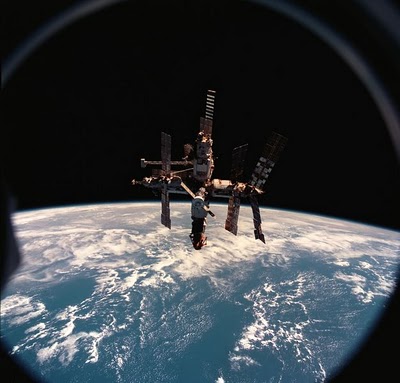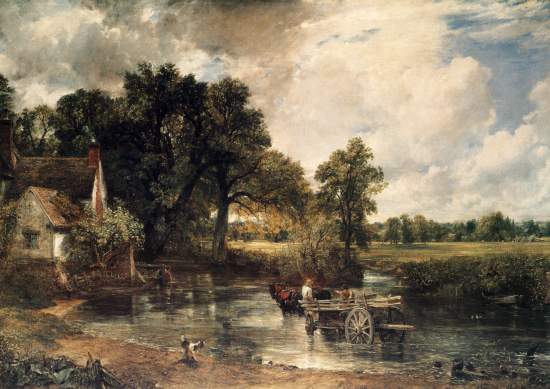‘Everything is impossible now …’
Fri. December 25, 2009Categories: Abstract Dynamics
A merry Christmas to all readers, especially to the trolls and grey vampires, who need the good cheer more than most…
Some recommendations and links:

1. Two sections from the breathtaking climax of Jameson’s Valences Of The Dialectic – a work that is by turns frustrating, dense and opaque, elusive and mist-like, exhausting, tragic, moving, galvanising, inspiring – a genuinely monumental achievement:
- We have indeed secreted a human age out of ourselves as spiders secrete their webs: an immense, all-encompassing ceiling of secularity which shuts down visibility on all sides even as it absorbs all the formerly natural elements in its habitat, transmuting them into its own man-made substance. Yet within the horizon of immanence, we wander as alien as tribal people, or as visitors from outer space, admiring its unimaginably complex and fragile filigree and recoiling from its bottomless potholes, lounging against a rainwall of exotic and artificial plants or else agonizing among poisonous colors and lethal stems we were not taught to avoid. The world of the human age is an aesthetic pretext for grinding terror or pathological ecstasy, and in its cosmos, all of it drawn form the very fibres of our own being and at one with us in every post-natural cell more alien to us than nature itself we continue murmuring Kant’s old questions – what can I know? What should I do? How may I hope? – under a starry heaven, no more responsive than a mirror or a space ship, not understanding that they require the adjunct of an ugly and bureaucratic qualification: what cn I know in this system? What should I do in this new world completely invented by me? What can I hope for in alone in an altogether human age? And failing to replace them by the only meaningful one, namely how can I recognize this forbiddingly foreign totality as my own doing, how may I appropriate it and make it my own handiwork and acknowledge its laws as my own projection and praxis?
And the theory-poetry of the very last paragraph which, to say the least, has a bearing on capitalist realism:
- … We may argue that Utopia is no longer in time just as with the end of voyages of discovery and the exploration of the globe it disappeared from geographical space as such. Utopia as the absolute negation of the fully realized Absolute which our own system has attained cannot now be imagined as lying ahead of us in historical time as an evolutionary or even revolutionary possibility. Indeed, it cannot be imagined at all; and one needs the languages and figurations of physics – the conception of closed worlds and a multiplicity of unconnected yet simultaneous universes – in order to convey what might be the ontology of this now so seemingly empty and abstract idea. Yet it is not to be grapsed in this logic of religious transcendence either, as some other world after or before this one, or beyond it. It would be best, perhaps, to think of an alternate world – better to say the alternate world, our alternate world – as one contiguous with ours but without any connection or access to it. Then, from time to time, like a diseased eyeball in which disturbing flashes of light are perceived or like those baroque sunbursts in which rays from another world suddenly break into this one, we are reminded that Utopia exists and that other systems, other spaces, are still possible.
2. “Everything is impossible now, including the so-called status quo.” Interview with me by Matt Fuller on the Mute site.
 Ellis Sharp‘s highly recommended Dead Iraqis:
Ellis Sharp‘s highly recommended Dead Iraqis:
- Sharp’s stories work best when there is a logic — not a traditional narrative logic, but a logic of association and correspondence — motivating his juxtapositions. This is emphatically the case in Sharp’s masterly 1992 story “The Hay Wain”, in which the serenity of Constable’s supposedly timeless painting is violently disrupted by proletarian rebellion. In “The Hay Wain”, English culture and history become a repeating labyrinth where the rebels are always on the run from the forces of power and privilege. Fleeing Peterloo, Jack Frake eventually stumbles into the Suffolk scene Constable is painting; meanwhile, in 1990, a Poll Tax rioter takes refuge in the National Gallery and “notices what he has never noticed before on biscuit tins or calendars, or plastic trays on the walls of his aunt’s flat in Bradford, those tiny figures bending in the field beyond.”
- Sharp replaces the dominant pastoral image of the English countryside, not with a deflated quotidian realism, but with a different kind of lyricism, one coloured by revolt: fields and ditches become hiding places or battlegrounds; landscapes that on the surface seem tranquil still reverberate with the unavenged spectral rage of murdered working class martyrs. It is not the sunlit English afternoon that is “timeless”, but the ability of the agents of reaction to escape justice. When the Poll tax rioter is clubbed by police and his blood starts to stain Constable’s emblem of English nationhood, we’re uncomfortably reminded of more recent episodes. “He was resisting arrest, right? Right mates? (Right, Sarge.) … We used minimal force, right? … Don’t piss yourself and we’ll see this thing through together, right mates? … Everyone’ll be on our side, remember that. The commisioner. The Federation. The papers. And, if it comes to it, the Coroner. Now fucking go and call for an ambulance.”
4. German readers check out the latest issue of Skug, which includes an interview with me, and a review of The Resistible Demise Of Michael Jackson. On which, see the venerable Maggoty Lamb‘s verdict